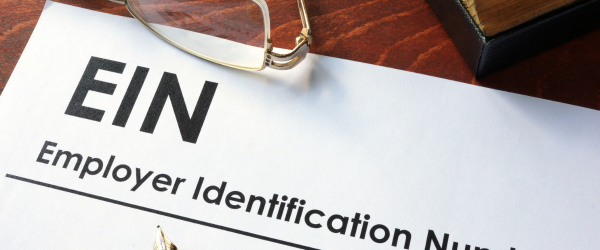EIN… SSN… QRC? ABC! XXX (rawr)
Just kidding! You know your ABCs, we’re all here for some form of XXX, and don’t even get me started on deciphering quick response code (QRC).
But let’s take a minute to think about EINs versus SSNs. What the heck are they, and why should you care?
SSNs
In the U.S., a Social Security number (SSN) is a nine-digit number issued by the Social Security Administration to natural and naturalized citizens, permanent residents, and temporary working residents. Although the number’s primary function is to track individuals’ income and benefits under the U.S.’s comprehensive Social Security program, over the years SSNs have become the go-to identifier for tax purposes. An SSN looks like this: XXX-XX-XXXX, where the Xs are numerals.
One big concern on everyone’s mind these days, especially given the free flow of information available on the interwebs, is identity theft. Identity thieves (read: jerks) frequently “use” SSNs, and that makes sense. Your SSN is interconnected with many other forms of identification and is regularly treated as an authenticator, like a second form of ID. Financial institutions generally require an SSN to set up bank accounts, credit cards and loans, and conventional employers always ask for it. The reason is simple, at least in part: It’s virtually impossible for more than one person to be assigned a legitimate SSN.
FYI: Before you go getting all paranoid about sharing your SSN, know this: If someone really wants to steal your identity, there are algorithms (read: science formulas) that can figure out your SSN using just your date and place of birth.
There’re alternatives though! An SSN is not the only form of Taxpayer Identification Number (TIN). Consider, if you will, the EIN.
EINs
An Employer Identification Number (EIN) is used for tax administration only. No personal stuff! An EIN looks like this: XX-XXXXXXX, again, where the Xs represent numerals.
Like an SSN, an EIN is a unique nine-digit number. Unlike SSNs, EINs are assigned by the terrifying Internal Revenue Service (IRS) to business entities operating in the U.S. Conventional employers, sole proprietors (!!), corporations, non-profits, government agencies, and a bunch of other entities all can use an EIN — and the part that’s super key here is the inclusion of sole proprietors.
A sole proprietor is a business entity owned and run by a single individual, and there is no legal distinction between the owner and the business. Models, that’s almost always you!
An EIN is just as public as anything else in today’s data-driven, hacker asshole, catfishing world, but it’s not linked to your personal identity the way an SSN is. That alone makes EINs worth considering.
Learn more about EINs and apply for your very own from the super-scary IRS here.
—
Got something you want to share? Tips or rage-inducing incidents from which other models may benefit? Email erika@ynotcam.com. I’d love to hear from you!










